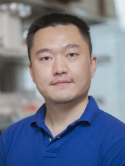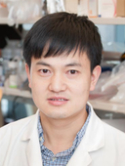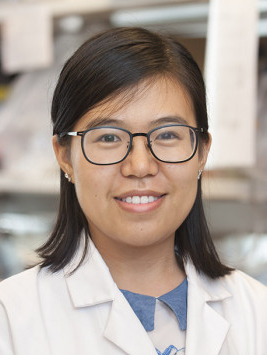Reprogramming tumor-associated macrophages to outcompete endovascular endothelial progenitor cells and suppress tumor neoangiogenesis Journal Article
| Authors: | Do, M. H.; Shi, W.; Ji, L.; Ladewig, E.; Zhang, X.; Srivastava, R. M.; Capistrano, K. J.; Edwards, C.; Malik, I.; Nixon, B. G.; Stamatiades, E. G.; Liu, M.; Li, S.; Li, P.; Chou, C.; Xu, K.; Hsu, T. W.; Wang, X.; Chan, T. A.; Leslie, C. S.; Li, M. O. |
| Article Title: | Reprogramming tumor-associated macrophages to outcompete endovascular endothelial progenitor cells and suppress tumor neoangiogenesis |
| Abstract: | Tumors develop by invoking a supportive environment characterized by aberrant angiogenesis and infiltration of tumor-associated macrophages (TAMs). In a transgenic model of breast cancer, we found that TAMs localized to the tumor parenchyma and were smaller than mammary tissue macrophages. TAMs had low activity of the metabolic regulator mammalian/mechanistic target of rapamycin complex 1 (mTORC1), and depletion of negative regulator of mTORC1 signaling, tuberous sclerosis complex 1 (TSC1), in TAMs inhibited tumor growth in a manner independent of adaptive lymphocytes. Whereas wild-type TAMs exhibited inflammatory and angiogenic gene expression profiles, TSC1-deficient TAMs had a pro-resolving phenotype. TSC1-deficient TAMs relocated to a perivascular niche, depleted protein C receptor (PROCR)-expressing endovascular endothelial progenitor cells, and rectified the hyperpermeable blood vasculature, causing tumor tissue hypoxia and cancer cell death. TSC1-deficient TAMs were metabolically active and effectively eliminated PROCR-expressing endothelial cells in cell competition experiments. Thus, TAMs exhibit a TSC1-dependent mTORC1-low state, and increasing mTORC1 signaling promotes a pro-resolving state that suppresses tumor growth, defining an innate immune tumor suppression pathway that may be exploited for cancer immunotherapy. © 2023 Elsevier Inc. |
| Keywords: | genetics; animal; metabolism; animals; neovascularization, pathologic; mammal; hamartin; tumor suppressor proteins; tumor suppressor protein; mammals; neovascularization (pathology); tsc; tuberous sclerosis complex 1 protein; tumor-associated macrophage; mammalian target of rapamycin complex 1; endothelial progenitor cell; tor serine-threonine kinases; target of rapamycin kinase; endothelial progenitor cells; tumor-associated macrophages; mtorc1; humans; human; cell competition; mechanistic target of rapamycin complex 1; endothelial protein c receptor; tuberous sclerosis 1 |
| Journal Title: | Immunity |
| Volume: | 56 |
| Issue: | 11 |
| ISSN: | 1074-7613 |
| Publisher: | Cell Press |
| Date Published: | 2023-11-14 |
| Start Page: | 2555 |
| End Page: | 2569.e5 |
| Language: | English |
| DOI: | 10.1016/j.immuni.2023.10.010 |
| PUBMED: | 37967531 |
| PROVIDER: | scopus |
| PMCID: | PMC11284818 |
| DOI/URL: | |
| Notes: | Article -- MSK Cancer Center Support Grant (P30 CA008748) acknowledged in PDF -- MSK corresponding author is Ming Li -- Source: Scopus |
Altmetric
Citation Impact
BMJ Impact Analytics
MSK Authors
Related MSK Work





















